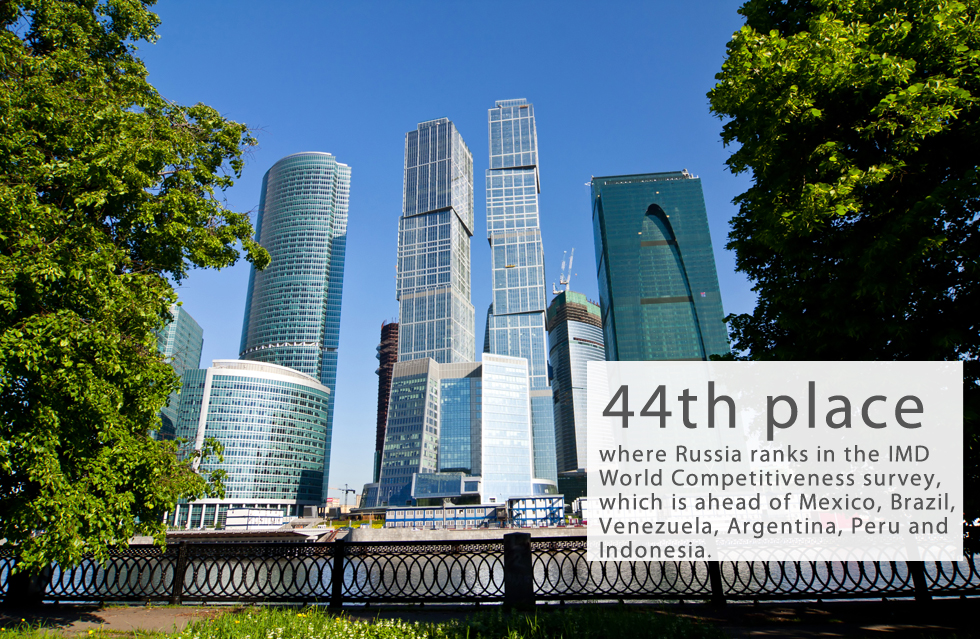
On May 30, the IMD World Competitiveness Center released a global competitiveness report. The Russian Federation took 44th place, which is one place higher than in 2015. The IMD World Competitiveness ranking is the leading assessment of the competitiveness of 61 countries based on more than 340 criteria divided into four principal groups: economic performance, government efficiency, business efficiency and the state of infrastructure.Based on IMD criteria, the major strengths of the Russian economy are the state of public finances, tax policy and the labor market. At the same time labor productivity, organizational structure and governance practices were listed as constraining economic development in the country.The Moscow Business School indicated the main challenges that will affect Russia’s economic performance in 2016. They include a dramatic decrease of customer demand and purchasing capacity, new actors on the global energy market, low investment activity and parliamentary elections. The growing threat of local and global terrorism is also a major concern.Read more: Why is Russia borrowing money on the foreign markets?
Evgeny DubinchukOn May 30, the IMD World Competitiveness Center released a global competitiveness report. The Russian Federation took 44th place, which is one place higher than in 2015. The IMD World Competitiveness ranking is the leading assessment of the competitiveness of 61 countries based on more than 340 criteria divided into four principal groups: economic performance, government efficiency, business efficiency and the state of infrastructure.
Based on IMD criteria, the major strengths of the Russian economy are the state of public finances, tax policy and the labor market. At the same time labor productivity, organizational structure and governance practices were listed as constraining economic development in the country.
The Moscow Business School indicated the main challenges that will affect Russia’s economic performance in 2016. They include a dramatic decrease of customer demand and purchasing capacity, new actors on the global energy market, low investment activity and parliamentary elections. The growing threat of local and global terrorism is also a major concern.
All rights reserved by Rossiyskaya Gazeta.
Subscribe
to our newsletter!
Get the week's best stories straight to your inbox